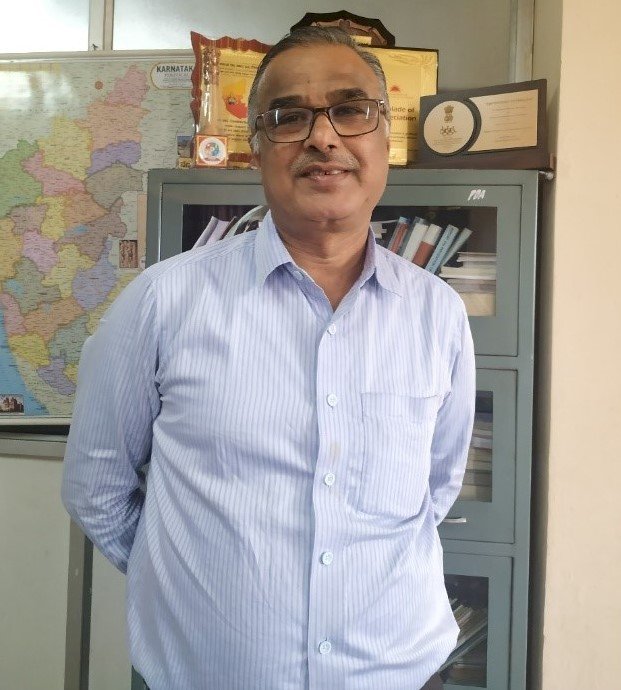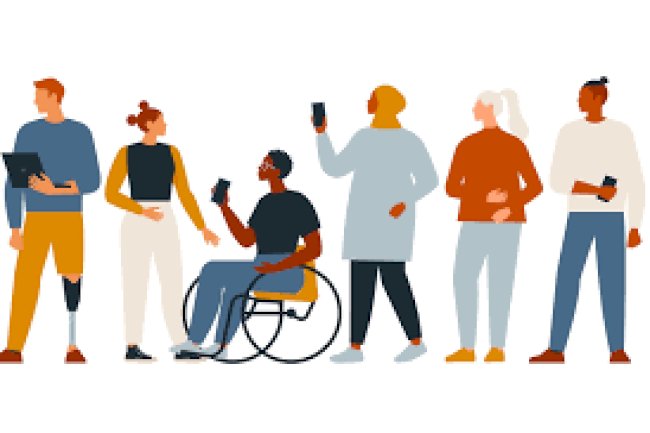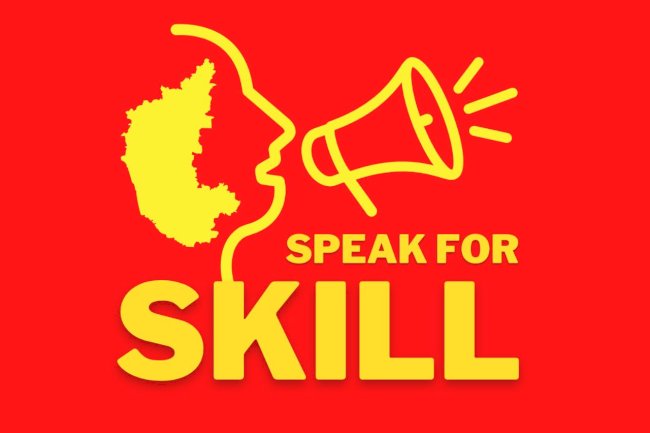“Ignorance of the system and prejudiced mindset of society limits employment opportunities of PwDs": V S Basavaraju, Karnataka State Commissioner for PwDs
‘Limitations of the societal attitude… limitations of the skill gap… limitations of the education system which doesn’t approach learning holistically… are among the grassroots barriers for the prevalence of a discriminatory employment ecosystem,’ stated Mr. V S Basavaraju, State Commissioner, Persons with Disabilities (PwDs), during an interview with GRAAM. The interview addresses the grassroots barriers that thwart the attempt of addressing varied multitudes of concerns related to the employment needs and opportunities of PwDs.

As a person who travels across the state to identify, raise and respond to offences and violations against persons with disabilities, how often do you come across cases and concerns faced by PwDs from the employment perspective?
Very often I receive requests regarding the requirement of jobs. I receive calls which state that “I am not getting any job. I have been going everywhere. Jobs are not being provided.” So, these requests are very common. But unfortunately, PwDs are largely unaware of their rights and their needs. Hence, the very numbers requesting for job opportunities is relatively less. This is the nature of concerns that we have come across
What are your observations regarding the status of employment of persons with disabilities?
Employment opportunities are available but there is no clarity in finding the appropriate opportunity for the appropriate candidate. Also, there is a halo of misconceptions that persist between the employers and PwD candidates about various aspects of employments such as skills, capacities etc. Therefore, these have to be resolved initially. In this direction, there is a necessity for providing an initial level of orientation to the employers regarding the employment of PwDs. Similarly, an initial level of orientation about employment needs among PwDs should be provided such that they become equipped to be part of an equal level playing ground.
What are the barriers that employers face to recruit persons with disabilities?
Recruiting of persons with disabilities is often construed as an additional task for the employers. Apart from the ones who have a genuine social inclination towards the upliftment of PwDs, the others often prefer a non-PwD as a perfect fit for their company, also due to a rise in supply of workforce and competition from the non-PwDs. Employers with social awareness definitely provide an inclusive working space but not all are inclined towards making an investment in this regard. However, the employers should note that this is an investment for building an inclusive base.
Also, we often fail to notice the importance of entrepreneurship models of livelihoods. If we could fuel the facilitation of entrepreneurship skills among PwDs, this could be not only a source of income for oneself but also can help the employment for PwDs as well. Hence, while speaking about the employment status, we should come up with models to nourish the PwDs with entrepreneurial skills.
Are the needs of employment different amongst PwDs in the urban and rural set up?
Than needs, I feel, in urban spaces, there are interventions regarding employment opportunities for PwDs being undertaken by actors like civil society, government, etc. This has also resulted in a relatively progressive approach of certain employers to incorporate PwDs in the workforce. Association for Persons with Disability works in collaboration with multiple stakeholders to provide employment for over 800 PwDs per year.
In rural areas, the scene is different. Generally, PwDs are largely recruited for entry level jobs. In rural areas, there is a larger supply of non-PwDs who take up this position therefore, this urges rural employers, to conveniently prefer for non-PwDs. This, further urges a few of the locomotive and mild blindness PwDs to migrate to the cities that offer jobs. While some manage to survive in cities, most others tend to return unemployed due to the cost of migration and sustenance.
What, in your opinion, is the source of the causes that limit the scope of employment opportunities for PwDs in Karnataka?
Ignorance is the root. Ignorance within the system, ignorance within the family, ignorance within the employment ecosystem. Further, a prejudiced mind-set regarding the capabilities of PwDs is a hindrance. These two factors largely limit the scope of employment opportunities for PwDs in Karnataka.
How would you like to respond to the gender-based discrimination in the employment ecosystem?
Gender based discrimination has nothing to do with disability. However, by acquiring education and procuring a job, the situation is getting better for women and girls without disabilities, while the status of discrimination remains for women PwDs. This can also be attributed to the additional care and requirements (physical, biological, social and economic) to be met with regard to women PwDs. Therefore, families are themselves subjected to in/direct frustration and helplessness which further scars on the individual. While girls or women with mild and moderate disability manages to seek opportunities, the ones with profound disability are subjected to hindrances and discrimination.
Do you think the skilling initiatives have adequately addressed the employment needs of PwDs?
There are sections of society that requires a completely different approach. These sections cannot be equated with the rest of the society. For them, we should conduct a foundational course which could bring them to the level playing field to bring them to the mainstream. This extra mile, if taken would give an inclusive touch to the skilling initiatives
The upper strata of society don’t take up skill training, the most vulnerable strata don’t fit into the criteria of the initiative. Therefore, only a small society’s stratum benefit from the skill training initiatives. It’s good to show impact in numbers but the ground remains where it is, untouched and unchanged.
This is the result of a lack of real engagement of the larger civil society and experts by the policymakers. The intent of skill initiative is undoubtedly good but the design is not equipped to tap employment needs of the most vulnerable sections like PwDs.
What are the grassroots barriers that you face to respond to the employment needs of PwDs?
Family plays a critical role. If the family starts bringing some energy in the lives of the PwDs, it would have a larger impact on the individual. We learn basic skills from our homes. Family itself is an important schooling unit. This is the grassroots barrier which has the potential of empowering any intervention efforts by the government.
What are the measures that the government takes to respond to PwD’s employment needs and opportunities?
Government plays an important role as an Enabler. Government introduces a law and compliance follows. By enhancing good relationship with the government, the civil society organisations can collaboratively lead inclusive changes within the framework of law. Therefore, government can particularly act as an enabler who can convert the ground reality-based suggestions into implementation.
In a study on employment needs and opportunities of PwDs, GRAAM has formulated the steps that the government bodies could take to facilitate an enabling environment. In this regard, would the government be willing to consider the steps put forth for implementation?
Yes, through studies the ‘what’ factor has been addressed so now if ‘how’ factor can be shared, we can work together for implementing the suggested measures so as to tap the creation of an inclusive and non-discriminatory employment ecosystem for the holistic upliftment of the Persons with Disabilities.
(The interview was conducted by Ms. Vishaka V Warrier - Senior Associate, Communications and Policy Engagement, GRAAM.)
What's Your Reaction?




















